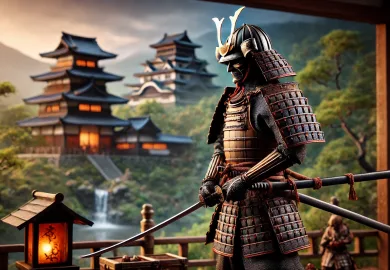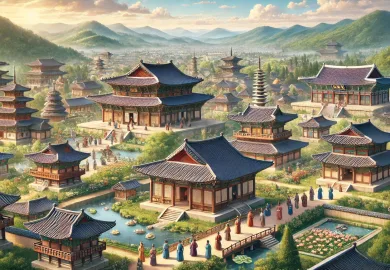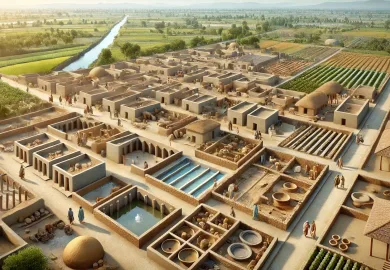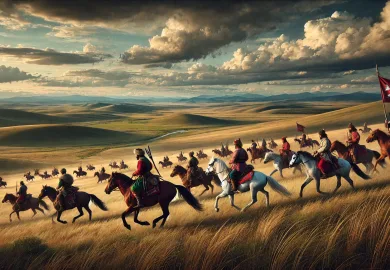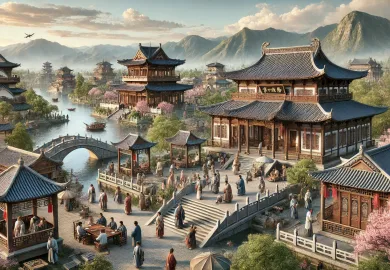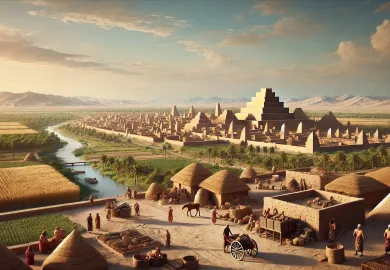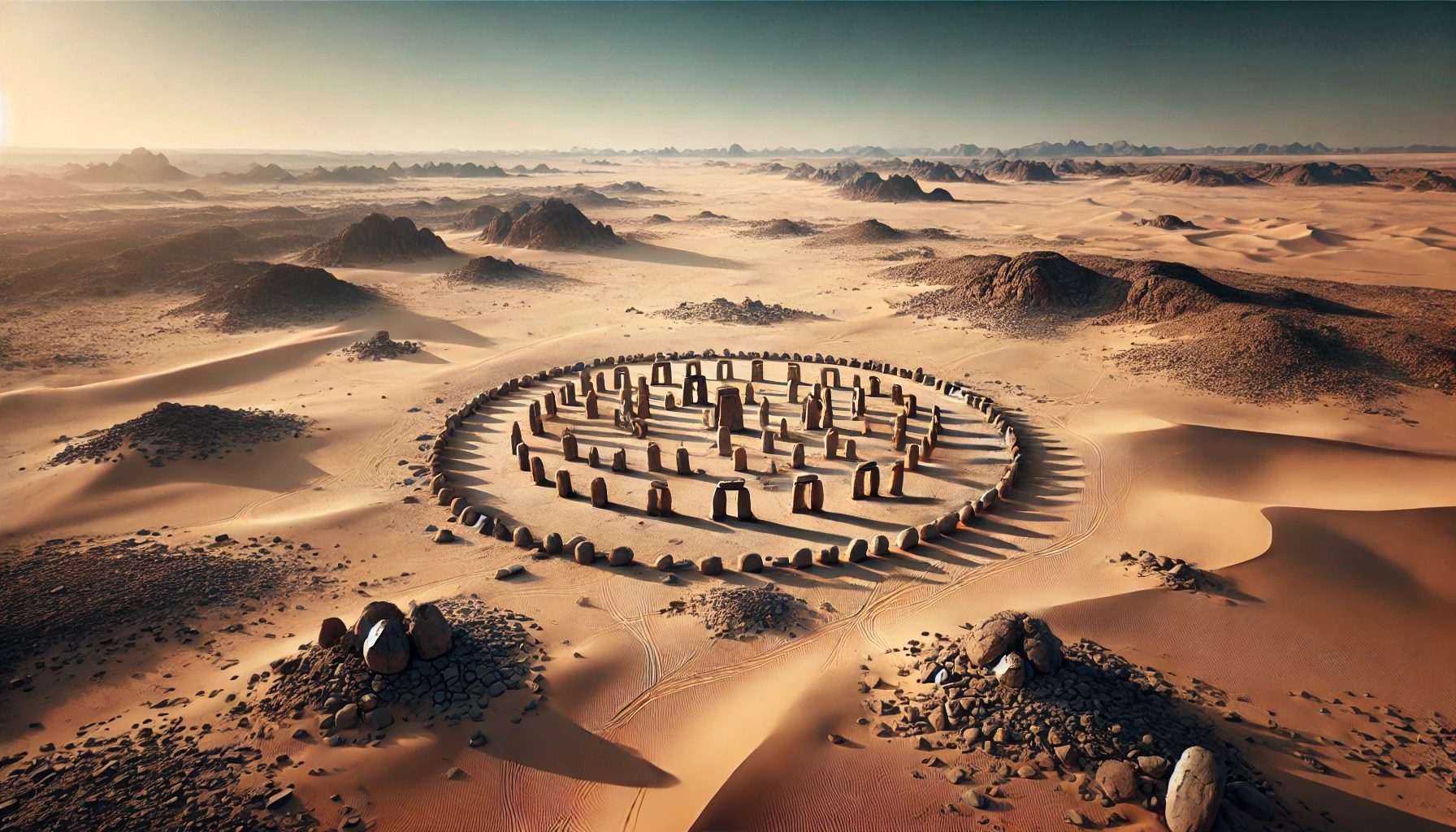
Disclaimer: This content was generated using AI. While I strive for accuracy, I encourage readers to verify important information. I use AI-generated content to increase efficiencies and to provide certain insights, but it may not reflect human expertise or opinions.
Nestled deep in the Nubian Desert, south of Egypt’s Western Desert, lies one of the most remarkable archaeological sites of prehistory: Nabta Playa. This ancient site, which dates back over 11,000 years, served as a major cultural and spiritual hub for nomadic peoples long before the rise of the Egyptian civilization. What makes Nabta Playa particularly fascinating is its mysterious stone structures, which reveal the early development of astronomy, religious rituals, and complex social behaviors. In this article, we will explore the intriguing aspects of Nabta Playa’s culture, its significance in prehistory, and the ongoing mysteries that continue to captivate historians and archaeologists.
The Discovery of Nabta Playa: A Window into Prehistoric Nubia
Nabta Playa first caught the attention of archaeologists in the late 20th century when teams led by Fred Wendorf, a prominent American archaeologist, uncovered a series of stone structures and artifacts in the Nubian Desert. Prior to this discovery, the region was considered inhospitable and barren, but the findings revealed that it had been a thriving center of human activity during the Neolithic period.
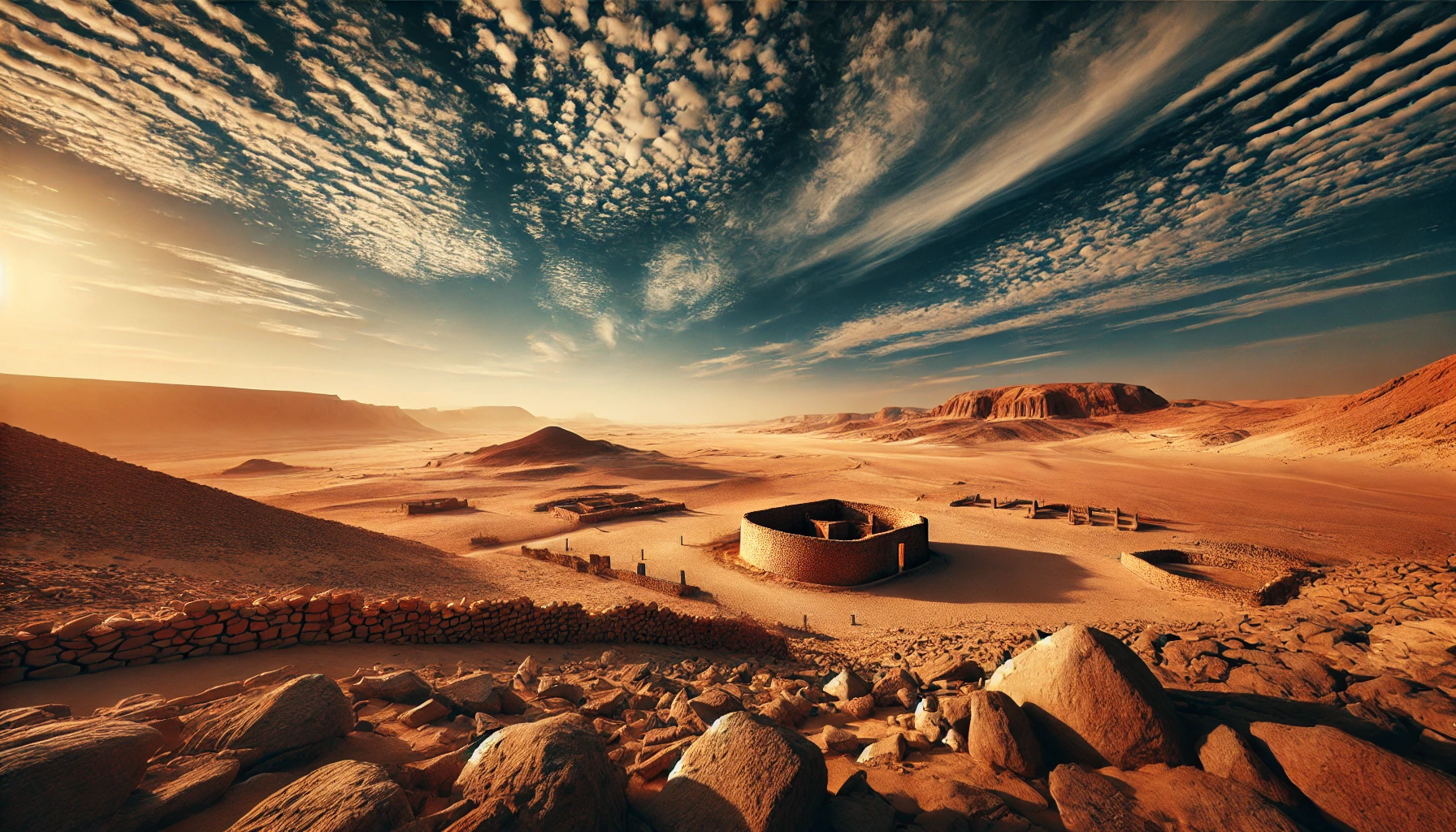
The importance of Nabta Playa lies not only in its stone circles but also in the evidence of early human settlements and ceremonial practices. Archaeologists have uncovered pottery fragments, hearths, animal bones, and evidence of cattle domestication. These findings suggest that the people of Nabta Playa were engaged in a pastoral lifestyle, and that the site was an important place for social gatherings and rituals.
One of the most intriguing aspects of Nabta Playa is the arrangement of stones, which appear to be aligned with celestial bodies. This discovery has led some researchers to propose that the site functioned as an astronomical observatory, allowing the people of Nabta Playa to track the movements of the stars and seasons, making it one of the earliest known examples of prehistoric astronomy.
The Astronomical Significance of Nabta Playa
The stone structures at Nabta Playa have often been compared to those of Stonehenge, yet they predate the famous British monument by several millennia. The arrangement of the stones suggests a deep understanding of astronomy and an effort to link terrestrial activities with the heavens. Scholars believe that the people of Nabta Playa were able to predict the summer solstice, which was crucial for determining the arrival of the rainy season—a vital period for their cattle-based economy.
The largest stone circle at Nabta Playa, often referred to as the “calendar circle,” is composed of several large stones that are aligned with the cardinal directions and the sunrise at the summer solstice. This alignment suggests that the site was used as a solar calendar to mark the passage of time and plan for seasonal changes. In addition to the solar calendar, researchers have also identified stones that appear to be aligned with the stars of Orion’s Belt, further supporting the theory that the people of Nabta Playa had a sophisticated understanding of the night sky.
The astronomical knowledge embedded in the site’s design has led some to speculate that Nabta Playa served not only as a calendar but also as a ceremonial center where rituals related to the cosmos were performed. These celestial alignments, combined with the presence of large, upright stones, suggest that the people of Nabta Playa viewed the sky as an integral part of their spiritual and cultural practices.
Religious and Ceremonial Practices of Nabta Playa
In addition to its astronomical significance, Nabta Playa is thought to have been a site of great religious and ceremonial importance. The large stone megaliths found at the site are believed to have served as markers for ceremonial spaces, where rituals related to fertility, agriculture, and cosmology were conducted.
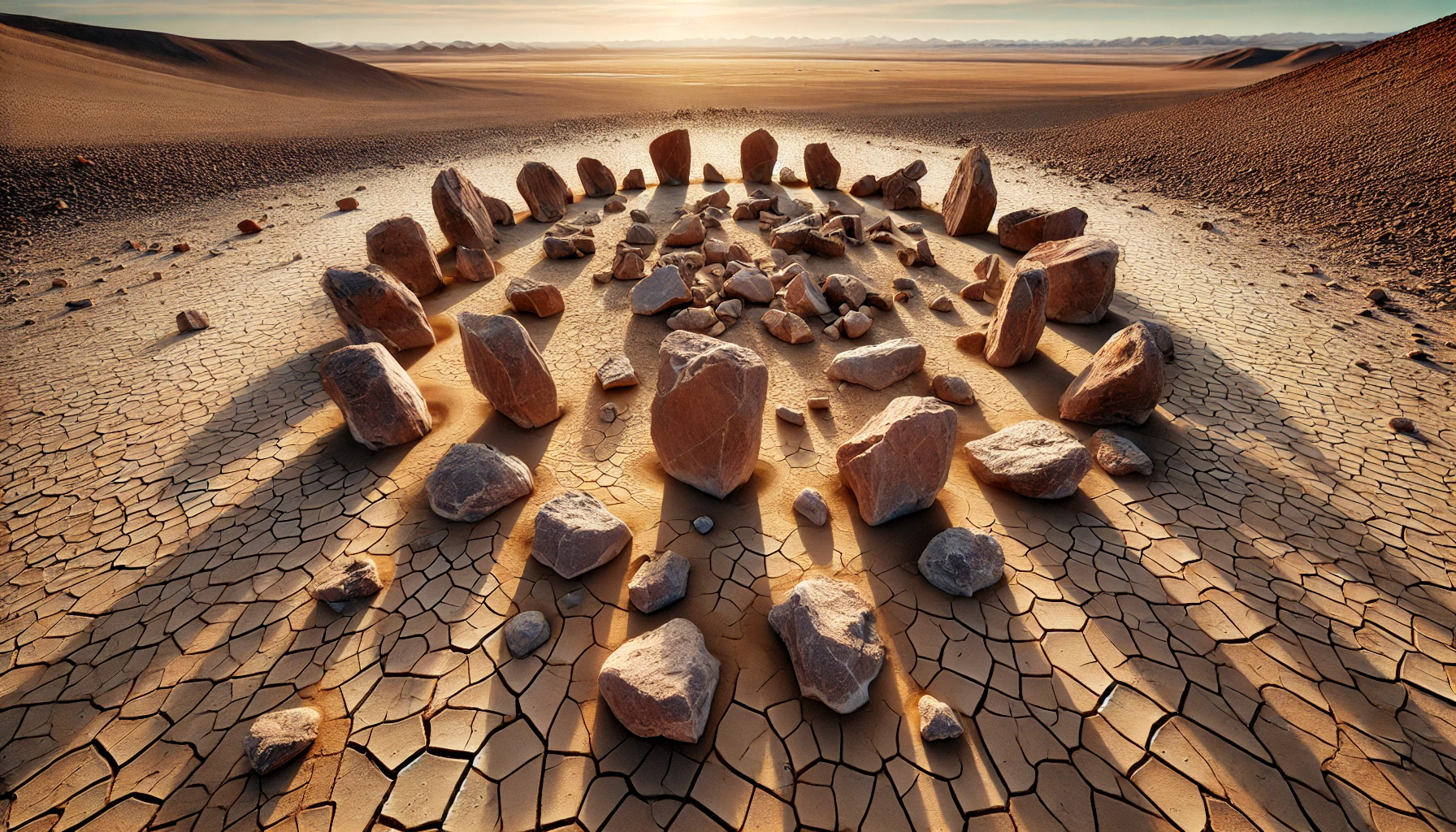
Evidence suggests that cattle played a central role in the spiritual life of the people of Nabta Playa. Cattle burials have been found in stone enclosures, indicating that these animals were revered and may have been offered as sacrifices during religious ceremonies. This practice bears striking similarities to the reverence of cattle in later Egyptian culture, particularly in the worship of the cow-goddess Hathor. Some scholars suggest that Nabta Playa could have been a precursor to the religious traditions that emerged in the Nile Valley.
Moreover, the presence of ceremonial hearths, arranged stone alignments, and evidence of communal gatherings points to the idea that Nabta Playa was a place where the community came together to celebrate and honor their deities. The alignment of the stone structures with celestial bodies further emphasizes the connection between the people’s religious practices and their understanding of the cosmos.
While much of the religious significance of Nabta Playa remains speculative, the site’s layout and artifacts suggest that it was a place where life and death, the heavens and the earth, and the community and its animals were all intertwined in a complex spiritual framework.
The Role of Nabta Playa in Early Civilization
Nabta Playa is not only an important archaeological site for understanding prehistoric Nubian culture, but it also provides critical insights into the development of early civilization in Africa. The complex social behaviors exhibited at Nabta Playa, such as the construction of stone structures, communal rituals, and the domestication of cattle, point to a society that was far more advanced than previously thought for the time.
The people of Nabta Playa may have been part of a broader cultural network that extended across the Sahara, linking various nomadic groups through shared practices and beliefs. As the climate changed and the region became more arid, it is likely that the people of Nabta Playa migrated to more fertile areas, such as the Nile Valley. Some scholars believe that the cultural and technological advancements developed at Nabta Playa influenced the rise of ancient Egyptian civilization.
The transition from a pastoral society to a more settled agricultural one is a key theme in the study of early human history. Nabta Playa offers a unique glimpse into this process, showcasing how environmental changes, social structures, and spiritual practices converged to shape one of the earliest complex societies in Africa.
Conclusion: Unraveling the Mysteries of Nabta Playa
The ancient site of Nabta Playa continues to be a source of fascination for archaeologists, historians, and astronomers alike. Its stone circles, aligned with celestial bodies, offer a rare glimpse into the early development of astronomical knowledge, while the artifacts and structures found at the site reveal a rich cultural and religious life that predates many of the world’s earliest known civilizations.
As more research is conducted at Nabta Playa, we are likely to uncover new insights into the lives of the people who once inhabited this remote corner of the Nubian Desert. The mysteries of Nabta Playa—its astronomical alignments, religious practices, and role in early civilization—remain a testament to the ingenuity and complexity of our prehistoric ancestors.
For those intrigued by the ancient world and the early development of human culture, Nabta Playa stands as a remarkable example of how early societies navigated their environment, the cosmos, and the spiritual realm, leaving behind an enduring legacy that continues to captivate us today.


